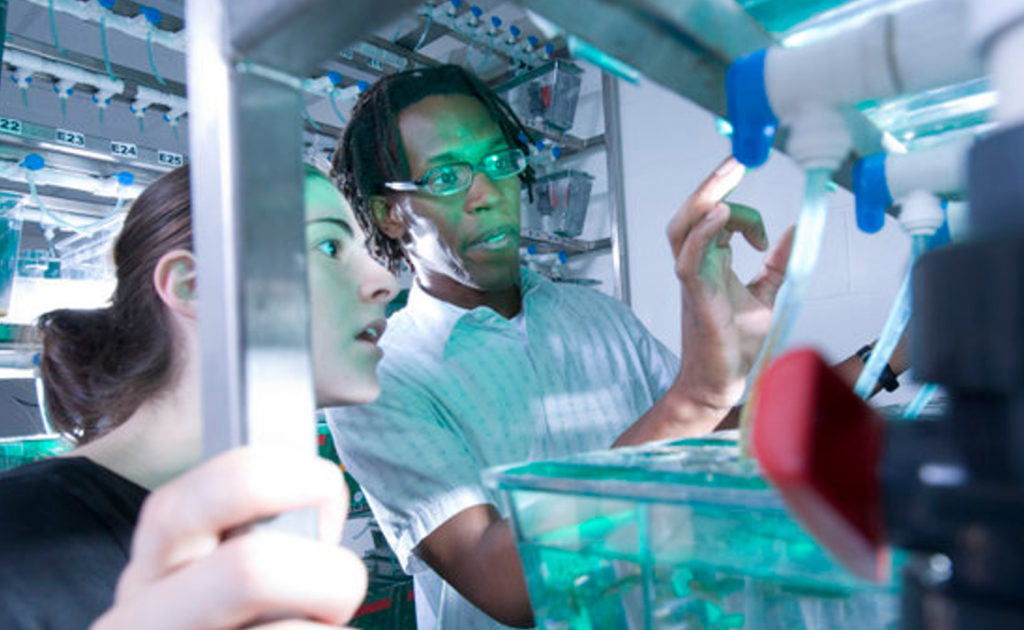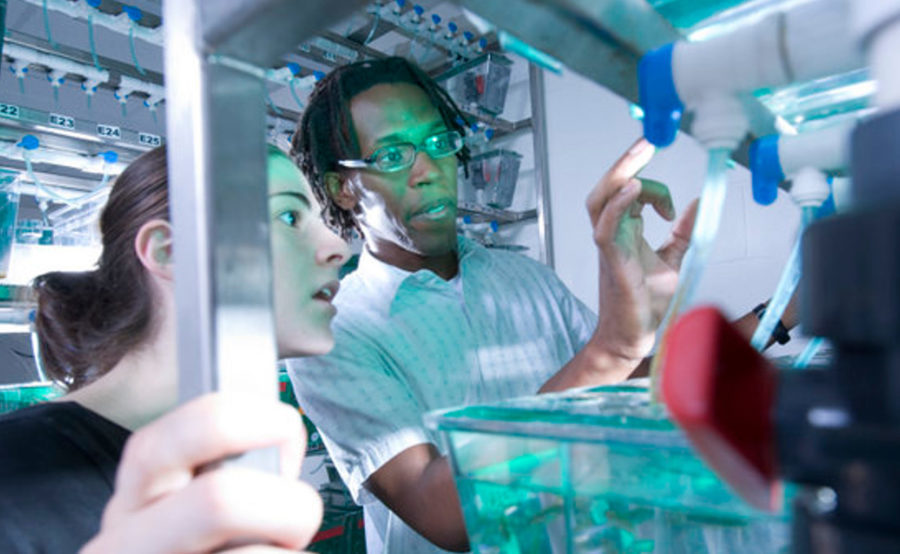
Photo: UMass Amherst
Science fair: UMass Amherst proposes increased collaboration in research will advance the equity and inclusion of women in STEM
The National Science Foundation has awarded a $3 million grant to the University of Massachusetts Amherst to foster equity for women and male faculty of color in STEM fields, according to a press release published by the school.
Reported as the largest interdisciplinary grant ever awarded to UMass Amherst, the ADVANCE Institutional Transformation award may help to decrease sexism often experienced by women studying and working in STEM.
UMass Amherst is already making a concerted effort to level the science, technology, engineering, and mathematics playing fields with its STEM Diversity Institue (SDI), and this grant should help the school further that cause.
[blockquote content=”This highly competitive grant will be a tremendous boost for our continuing efforts to create a campus environment that supports the success of all members of our community. — Chancellor Kumble Subbaswamy“][/blockquote]
Over the course of five years, the $3 million grant will support an interdisciplinary faculty team on their efforts to use collaboration as an innovative professional advancement model for underrepresented faculty.
“This highly competitive grant will be a tremendous boost for our continuing efforts to create a campus environment that supports the success of all members of our community,” says UMass Amherst Chancellor Kumble Subbaswamy. “I commend the faculty team for developing a winning proposal that envisions a new and bold way for the university to promote the success and professional growth of our faculty.”
The project is being led by principal investigator Enobong (Anna) Branch, professor of sociology, associate chancellor for equity and inclusion, and chief diversity officer, to ensure that the ADVANCE project activities and practices are sustained beyond the award timeline and systematically integrated into the existing campus structure.
At the core of the project is what’s called the R3 model: strategically using resources, relationships, and recognition to encourage faculty collaboration. The project’s leadership is drawing upon research literature on leadership development and organizational behavior to create pathways for faculty advancement.
With coordination from the campus’ Institute for Social Science Research (ISSR), the ADVANCE project will center its research and programming on three main elements: encouraging research collaboration, creating an inclusive community through mentoring, and promoting shared decision-making at the department level.
“Research is what makes or breaks a faculty career in the sciences,” says sociology professor and director of ISSR, Laurel Smith-Doerr. “We are seeing more and more collaborative research in the sciences including social sciences.”
Along with having more faculty work together on research, encouraging mentoring aims to create a deeper support network. “Women in the biomedical sciences have done better in companies where there is a flatter management structure,” says Smith-Doerr.
Planning for the ADVANCE project has been a four-year long task with a team of men and women, including four women of color, reviewing literature, collecting pilot data, and building relationships with stakeholders, Branch says.
We’ll ask people, ‘Will it be stellar science? How does it support gender equity?’ — ISSR Director, Laurel Smith-Doerr
With foundational work, such as a website and staff hiring now underway, some initial programming and organizational activities will likely unfold during the spring semester, according to Smith-Doerr. Meanwhile, the project is working with the Provost’s Office to develop training for departmental leadership on issues such as mentoring and best practices.
Next semester, she adds, ISSR will call for proposals for seed funding for collaborative research projects. “We’ll ask people, ‘Will it be stellar science? How does it support gender equity?’”
To ensure accountability, there are also assessment and research aspects to the entire ADVANCE project, Branch says. External and internal evaluators will assess whether the program activities are meeting their goals.
The other co-principal investigators are Joya Misra, sociology, Buju Dasgupta, psychological and brain sciences, Jennifer Normanly, biochemistry and molecular biology, James Allan, computer science, David McLaughlin, electrical and computer engineering, and Gabriela Weaver, chemistry.



 3 min read
3 min read



